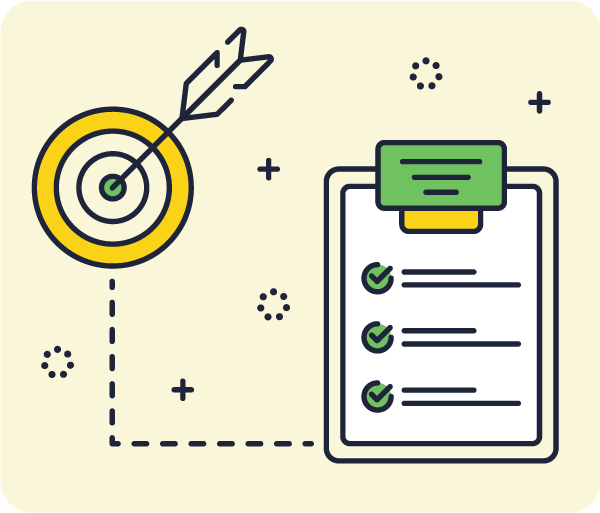Ericka T. Hollis, Ph.D., QM Research Colleague

Do you have a checklist for traveling, party planning, or moving? Checklists can be simple yet essential tools for us to use in our everyday lives. As is noted in the NPR podcast, “The Trick to Surviving a High-Stakes, Higher Pressure Job? Try a Checklist,” our human brains can only handle five to nine items simultaneously This factoid is why we have difficulty remembering long lists of information/tasks, even (and sometimes especially) if we are familiar with the information/tasks at hand. The ability to rely on trustworthy written checklists can provide our minds the opportunity to focus on other tasks that need our attention, thereby freeing up more cognitive space. Undoubtedly, proper utilization of checklists can make our lives more productive.
In fact, using checklists at work, as well as at home, is something many experts often do. Atul Gawande’s The Checklist Manifesto posits that checklists are vital in high-stakes working environments, such as the medical, aviation, and engineering fields. Pilots, doctors, and engineers are well-versed in their different areas of expertise and have performed many of the same procedures repeatedly, with this experience adding to their credibility and competence. However, sometimes experts rely so much on instincts or their own past experiences that they may overlook or omit steps or tasks. In the aforementioned NPR podcast, the moderator highlights how experts can use checklists to supplement their existing knowledge and to help them focus on the items/procedures that will most likely trip them up. For example, pilots complete numerous hours in training and simulations learning how to maneuver complex systems before they are permitted to fly real aircrafts. Despite the amount of training and flight hours logged, all pilots regardless of their level of experience follow simple pre-flight checklists that have been carefully designed for safety. While it may seem that checklists simply point out the obvious, they serve as excellent reminders and help to keep experts focused.
Focusing on what activity is important and how to do it right is really what quality assurance is all about, making checklists an important tool for numerous fields, including online course design. The Quality Matters Rubric, while much more than a checklist, can act as one in that it takes you, Standard by Standard, through the important components to include in a well-designed course. While many of the educators who design courses using sound instructional design principles are considered experts, using the QM Rubric helps them improve the overall course design. Additionally, the QM Rubric provides a shared knowledge base and common language for faculty, instructional designers, and staff. Regardless of level of expertise, it is important not to rush into online course design without using some type of roadmap or checklist that highlights key areas of focus. Ultimately, proper utilization of checklists and even those that can act as one, such as the QM Rubric, can improve the overall impact of any process.
